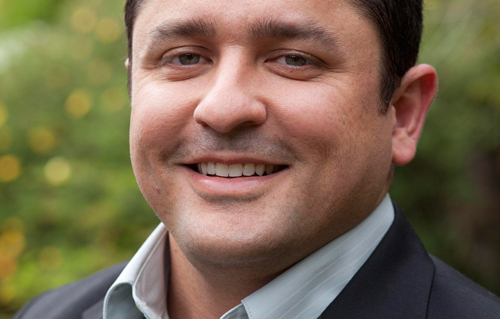
The GSM Association, an influential industry body that represents most of the world’s mobile operators, has warned that centralising spectrum decisions in SA’s ministry of communications could result in spectrum being allocated to companies or government agencies that won’t make optimal use of it.
Government last week published proposed amendments to the 2005 Electronic Communications Act that will, if enacted, result in the Independent Communications Authority of SA (Icasa), the industry regulator, losing much of the power it has over spectrum management.
The GSM Association’s director of market development and spectrum policy, Peter Lyons, says the proposed amendment, contained in the Electronic Communications Amendment Bill — PDF available here — will “change the role of Icasa and the department of communications and draw clear boundaries between the responsibilities of the two”.
“I think this is being done to prevent any kind of overlap between responsibilities and any kind of turf disputes, but it creates the impression that Icasa may in some ways see some of its authority on licensing eroded and Icasa is sensitive to this, thinking this may somehow imply some loss of institutional independence,” Lyons says.
“That conclusion can be drawn unless it’s communicated more clearly what the implications are of these amendments.”
He says it’s hard to see how making these changes is a good move. “To move spectrum licensing out of the domain of the regulatory body and shift it into the policy-making body could create some problems down the road,” he says.
“Decisions will be more susceptible to outside influence when you take them out of the portfolio of the regulator and move them into more of a ministerial role.”
This could result in “less efficient” allocation of spectrum to operators that are “not necessarily the most competent” or who don’t have the “experience and capacity to make the investment and deploy networks”.
It could result in spectrum going to “parties who may not have a strong track record, such as Sentech, for example”, Lyons says.
Sentech is sitting on 50MHz of prime spectrum in the 2,6GHz band, but has failed to use it, much to the displeasure of commercial operators that want access to the band to roll out next-generation wireless broadband networks.
Kathleen Rice, a director in Cliff Dekker Hofmeyr’s technology, media and telecommunications practice, says the proposed amendments may be unconstitutional and Icasa arguably enjoys constitutional protection as a chapter 9 institution.
“Frequency is a valuable resource and it’s important that the regulator for a resource like this is independent,” says Rice.
She says that because government has a controlling interest in licensees such as Broadband Infraco and Sentech, there is a “clear conflict of interest should [government] get to decide what happens with frequencies”.
The Icasa Act also guarantees the regulatory authority’s independence and insists it must be “free from political or commercial interference”.
Though interested parties have until early December to offer comments on the proposed amendments, Rice says she’s not sure how many companies will be willing to voice their concerns.
“It might be possible to take it on constitutional review,” says Rice, but adds that aside from Altech, there isn’t much appetite to take government to court on broadcasting and telecoms issues.
Technology group Altech won a case against the then communications minister, Ivy Matsepe-Cassaburi, in 2008 where it argued that value-added network service providers should be allowed to build their own network infrastructure without having to rely on companies like Telkom for telecoms facilities. Rice says the court stressed the importance of an independent regulator.
She says the minister of communications should be seen as part of a policy making body and it is entirely appropriate for policy makers to offer suggestions about allocating spectrum. They shouldn’t, however, be able to make the final allocations.
And it’s not only telecoms operators who could be affected. “If you control the spectrum you can decide who broadcasts where,” she says. “That means you can interfere with the means of communication, and hence with freedom of expression, if you can decide who can use which frequencies and for what.”
Rice says she hopes the proposed amendments will be scrapped. “We can only hope reason will prevail.”
She says an independent regulator is crucial for investment and stability in the industry. She says the moment government starts flexing its muscles beyond its mandate, trouble is sure to follow. — Craig Wilson and Duncan McLeod, TechCentral
- Subscribe to our free daily newsletter
- Follow us on Twitter or on Facebook
- Visit our sister website, SportsCentral (still in beta)

